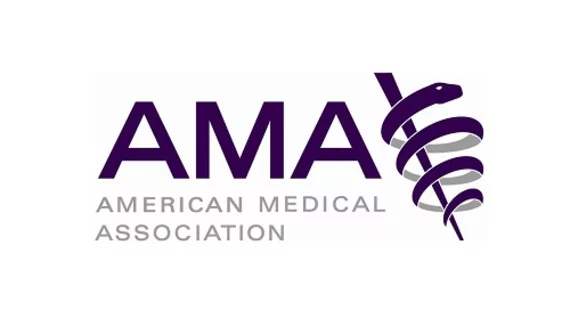AMA touts leadership combating opioid epidemic as story labels group a barrier to reforms
The American Medical Association (AMA) released a report on May 31 detailing how “physician leadership” has led to progress fighting the epidemic of opioid abuse and addiction. Just two days earlier, however, a story published by the Daily Beast labeled the AMA as a main roadblock to Congress addressing the prescription of opioids.
The report from the AMA’s Opioid Task Force said opioid prescribing has declined by more than 22 percent since 2013 while access to the overdose antidote naloxone, buprenorphine treatment and physician education in pain management and substance use disorders have all been on the rise.
Patrice Harris, MD, MA, chair of the task force, said physicians have become “increasingly judicious when prescribing opioids,” though opioid-related deaths continue to rise.
“These statistics prove that decreasing prescriptions alone will not end the epidemic,” Harris said in the report. “We need well-designed initiatives that bring together public and private insurers, policymakers, public health infrastructure, and communities with the shared goal to improve access and coverage for comprehensive pain management and treatment for substance use disorders.”
Among the advancements touted by the AMA was the increased use of prescription drug monitoring programs (PDMPs). Aimed at identifying patients who have existing opioid prescriptions and may be “doctor shopping” to obtain more drugs, PDMPs now have more than 1.5 million physicians registered and were queried 300 million times in 2017.
Yet requiring use of PDMPs has been one of the policies the AMA has lobbied hard against, according to the Daily Beast. The group’s position isn’t that doctors should avoid checking databases, but rather they shouldn’t be mandated to do so.
Requirements which may impact clinical decision making have met resistance from the AMA, according to the staff of Sen. Rob Portman, R-Ohio. Among the ideas they’ve opposed limiting opioid prescriptions for acute pain to three days or less and any mandatory physician education.
“Limits and one-size-fits-all approaches will not end this epidemic,” the AMA said in a statement to the Daily Beast. “The AMA has urged Congress, statehouses, and payers to cover evidence-based treatment that works. Most patients with opioid use disorder have trouble accessing care as payers and others put up obstacles.”
Opposition to government intrusion and mandates on doctors have long been a hallmark of the AMA’s lobbying efforts, like popularizing the term “socialized medicine” when it opposed a universal coverage plan in the 1940s and enlisting future president Ronald Reagan’s help in a campaign opposed to Medicare in the early 1960s.
Its lobbying power remains strong: The Daily Beast said the AMA spent $21.5 million on lobbying in 2017, has already spent $6.8 million this year and has given more than $500,000 to members of Congress in campaign donations in the 2018 election cycle. Its clout has stalled progress on certain opioid proposals, according to Sen. Joe Manchin, D-West Virginia, because some lawmakers are “too scared to take on the AMA.”
Gary Mendell, CEO of anti-addiction nonprofit Shatterproof, said he’s been told by congressional staff the AMA will “resist anything that regulates healthcare.”
“I’m not about regulating healthcare," Mendell said. “I don’t care if it’s regulated or not. I just care that they are safely taken care of … if doctors were doing it on their own, then we wouldn’t be having this conversation.”

